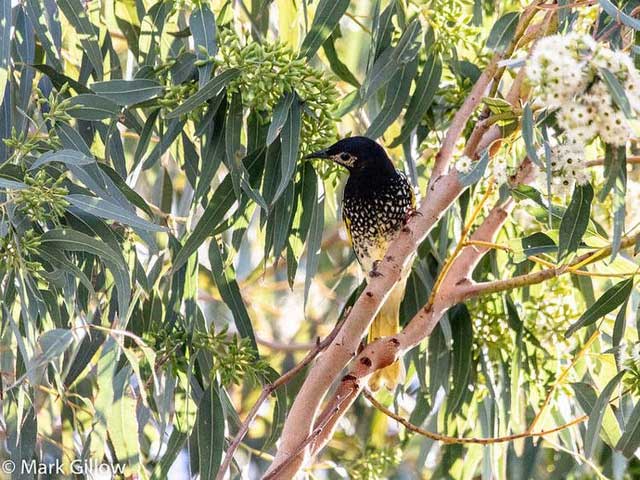Eastern Australian regent bile is one of the rarest birds in the world, but experts fear it will die out soon because it has forgotten how to sing.
Hundreds of regent birds from eastern Australia could once be spotted regularly in south-eastern Australia, but today the species is critically endangered, with only 300 surviving worldwide.
They are also known for their complexity in special mating search songs, but as the number begins to decrease bird watchers begin to notice that the complexity also decreases to the point that the regent birds than the male himself do ‘even calls their kind no longer.
Currently, there is ample evidence that regent birds have forgotten their own song, which could cause the entire species to become extinct.
At one point, Australian birders noticed that male regent birds even mimicked the song of other birds such as magpie, currawong, and coucoushrike, but they had no explanation as to why this was happening.
Some experts believe this imitation is seen as a deliberate strategy to avoid being attacked by larger birds. However, a recent study found it to be the exact opposite.
“Poor birds don’t have the chance to learn what they should be singing,” said Dr. Ross Crates, environmentalist and study author.
Young regent birds learn their song patterns from adult members of their species, just as humans learn to speak, but because they spread very little in their habitat, many males cannot hear properly. Singing style, so they began to use the tunes of other birds. The problem is, these aren’t exactly the kind of songs the Regent wants to hear, so their chances of finding a mate are slim.

The young regent learns the song patterns when they leave their nest, listening to other adults and imitating them. But since very few congeners remain, they cannot hear other birds of the same species in the wild.
“They are very rare and the living area can be 10 times that of the UK, so the ability to find songs to learn is extremely difficult for regent birds,” said Dr Crates.
Crates and his team don’t aim to study the song patterns of regent birds, but to find specimens in the wild, which presents a major challenge. But it was during their search that they found regent birds that sang like… other birds.
Dr. Sue Anne Zollinger, an animal communication expert from Manchester Metropolitan University, said: “This study shows how population decline and habitat fragmentation can adversely affect this important process in the life of songbirds.”


